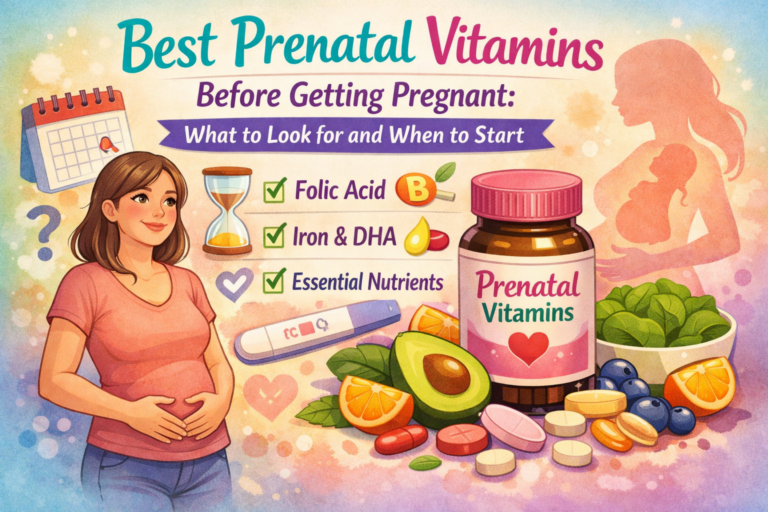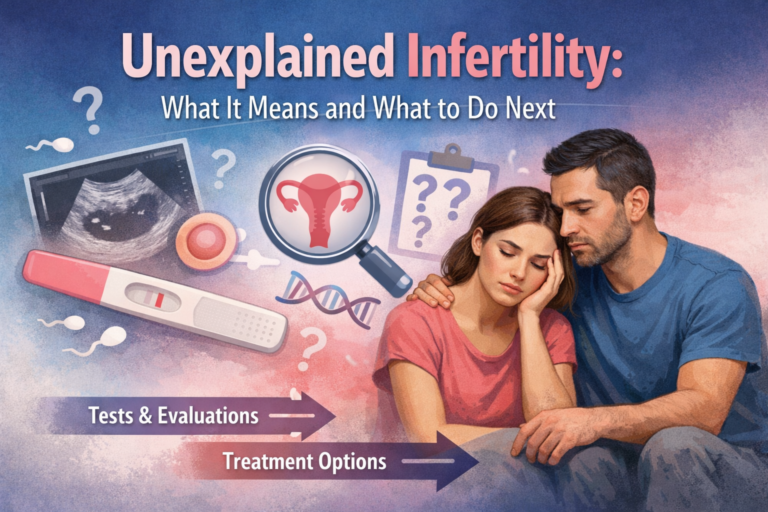
You’re pregnant and have got a fever. You may feel anxious about whether the fever can harm your baby or not. Fever during pregnancy is a common concern among pregnant women. The reasons for the fever may be different from one to one. Understanding its causes and potential risks can help you to manage it better.
In the topic today, we would like to equip pregnant women with the essential knowledge they need about fever while pregnant. You will learn about the causes, symptoms, treatment, and tips to prevent fever when you’re pregnant. Remember always to check without your doctor about the medicines taken during pregnancy for the safest. A fever while pregnant is not always something dangerous. So, you don’t need to be so worried about that.
What Is Considered A Fever During Pregnancy?

The normal temperature of your body usually fluctuates around 96.8 – 98.60F (36-37.50C). It will be lowest in the morning and highest in the evening. When your body’s core temperature reaches over 98.60F (37.50C), it is considered a sign of fever. If it increases to 1010F (38.30C), call your doctor immediately.
Otherwise, a low-grade fever, generally under 100F (37.80C), is usually not a big worry. However, keep track of your temperature to make sure that the temperature starts rising.
Fever during pregnancy is a cause for concern and you shouldn’t ignore it. Talk to your doctor to prevent any potential complications for both you and the developing baby.
Causes of Fever
Fever during pregnancy can caused by many reasons. Here are some potential causes you should know:
- Common Cold & Flu: Pregnancy can make you more easily suffer from viral infections like colds and flu (influenza). This is due to changes in your immune system while pregnant. So you should consider getting a flu shot to prevent its annoying symptoms. A low-grade fever might indicate a cold, while higher fevers can signal the flu, accompanied by body aches and chills.
- Bacterial Infections: Fevers during pregnancy can result from bacterial infections such as urinary tract infections, kidney infections, acute bronchitis, pneumonia, viral gastroenteritis, or strep throat. In this case, your doctor may recommend using antibiotics as treatment.
- Listeriosis: Although rare, listeriosis also can be the cause of fever while pregnant. To reduce listeria bacteria, you should prevent eating raw meat, fish, and unpasteurized cheese during pregnancy.
- Food Poisoning: Food poisoning (caused by viruses, bacteria, or toxins) also can cause fever. If this is the reason for your fever, you can experience nausea, vomiting, and abdominal pain. This is especially concerning during pregnancy due to dehydration risk and the potential for contractions and preterm labor. If you suspect food poisoning, call your doctor.1
- Respiratory tract inflammation: Fever can be brought on by respiratory tract inflammation in pregnancy, such as sinusitis or bronchitis. These illnesses, which frequently have symptoms including fever, coughing, nasal congestion, and sore throats, are caused by bacterial or viral infections. Inflammation can raise body warmth and cause difficulty breathing.2
- Fetal amniotic infection: Amniotic fetal infection, also known as chorioamnionitis, is a bacterial infection of the amniotic fluid, membranes, and placenta, causing fever during pregnancy. Usually, it happens when germs enter the uterus from the vagina. High temperature, cramping in the abdomen, bad-smelling amniotic fluid, and elevated heart rate in the mother and fetus are among the symptoms. Serious side effects from this infection include fetal infection, sepsis in the mother, and premature labor.
- COVID-19: Fever is also a symptom of COVID-19. This is an infectious respiratory disease that you must be very cautious. If you suspect exposure, contact your doctor immediately.
Symptoms Accompany A Fever

Other accompanying symptoms with fever while getting pregnant might indicate a more serious underlying condition. Here are some key signs for you to watch:
- Shortness of Breath: This can be a sign of a respiratory infection like pneumonia.3
- Pain in the Back or Abdomen: They could indicate various issues, including urinary tract infections (UTIs) or appendicitis.
- Chills: Chills often accompany a fever. But if it is persistent or severe chills, it might be a sign of a more serious infection.
- Neck Stiffness: This symptom, along with a fever and headache, could suggest meningitis. Seek immediate medical attention if you experience these symptoms together.
- Other Warning Signs: Contact your doctor if you experience any other concerning symptoms. Severe headache, vomiting, vaginal bleeding, or cough while pregnant – they can be the signs of serious conditions.
How Can A Fever Affect Your Baby?
Fever during pregnancy is a common concern. A low-grade fever is usually not serious for your developing baby. Remember to keep an eye on the number and use acetaminophen to bring the temperature down if it increases.
One thing to keep in mind: The underlying cause of the fever, its severity, and its frequency all can contribute to potential risks. Early treatment can be crucial to minimize the risks to your unborn baby.
Getting A Fever In Early Pregnancy – Is It Risky?
Fevers are common during pregnancy and affect roughly 1/3 of pregnant women. The good news is that they don’t seem to pose a significant threat to the developing baby. Most of the pregnancies give healthy birth labor after getting fevers.
You should keep track of your fever at any point in pregnancy. However, if you get a fever in the first trimester, the risks may increase slightly. A study suggests a possible association between fevers during early pregnancy and certain birth defects.
The key thing you need to understand is that the fever might not be the sole reason. The underlying cause of the fever, such as bacterial infection, maybe the real culprit.
How To Treat Fevers During Pregnancy?

Acetaminophen (Tylenol) is generally considered safe for reducing fever during pregnancy. However, remember to follow the dosage instructions on the label or speak to your pharmacist.
Avoid using aspirin and ibuprofen except as recommended by your doctor. These medications can pose risks during pregnancy.
Additional tips for managing a fever while pregnant:
- Tepid Bath or Shower: The ideal bath temperature should be around 98.6 to 1000F (37 – 37.80C). It can help lower your body temperature. Avoid using too hot water because you can feel colder afterward.
- Stay Hydrated: Drink plenty of fluids like water, clear broths, or electrolyte beverages to support and regulate temperature. Take at least 8 glasses of fluids per day or consult your doctor.
- Light Clothing & Covers: Dress in breathable clothing made from natural fibers like cotton. Avoid piling on blankets, as this can trap heat and make your body temperature rise.
How To Avoid Getting Fevers During Pregnancy?
Here’s how to avoid catching a cold or flu while pregnant:
- Wash Your Hands Frequently: Wash your hands thoroughly with soap and warm water for at least 20 seconds. Do it especially after being in public places, using the restroom, or before preparing food. Consider carrying an alcohol-based hand sanitizer for situations when soap and water aren’t readily available.4
- Keep Distance From Sick: Stay far away from people who have colds, flu, or other illnesses can significantly reduce your risk of catching them. If someone you live with is sick, encourage them to practice good hygiene and wear a mask to minimize the spread of germs.
- Flu Shot: Getting a flu vaccine is one of the most effective ways to protect you from the influenza virus. The Centers for Disease Control and Prevention (CDC) recommends that pregnant women get vaccinated at the beginning of flu season. The ideal time for a flu shot should be in October.
If the cause of your fever is a viral illness, taking Tylenol and good hydration are enough to help you recover. But in case the cause is bacterial, antibiotics will be recommended. The golden rule is that always visit your doctor for proper treatment.
The Bottom Line
Remember, if you experience a fever during pregnancy or any concerning symptoms, contact your doctor for advice. Although the risk is very low, it still can affect the baby if you don’t have proper treatments. Keep an eye on your temp and take proactive steps to safeguard the health of you and your unborn child.
Sources
- U.S. National Library of Medicine. (n.d.). Fever. MedlinePlus. https://medlineplus.gov/fever.html ↩︎
- Upper Respiratory Infection: Symptoms, Contagious, Treatment. (n.d.). Cleveland Clinic. Retrieved June 6, 2024, from https://my.clevelandclinic.org/health/articles/4022-upper-respiratory-infection ↩︎
- Pneumonia: Causes, Symptoms, Diagnosis & Treatment. (n.d.). Cleveland Clinic. Retrieved June 6, 2024, from https://my.clevelandclinic.org/health/diseases/4471-pneumonia ↩︎
- Centers for Disease Control and Prevention. (n.d.-b). About handwashing. Centers for Disease Control and Prevention. https://www.cdc.gov/clean-hands/about/index.html
↩︎






